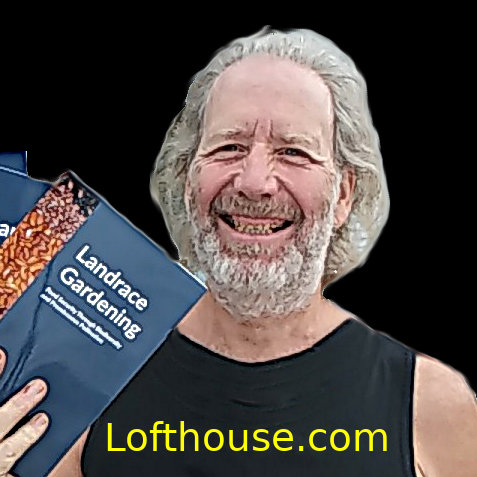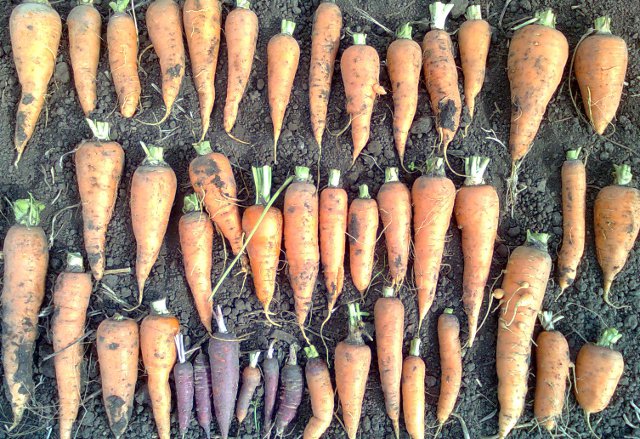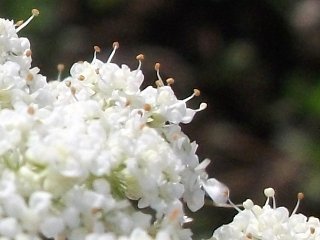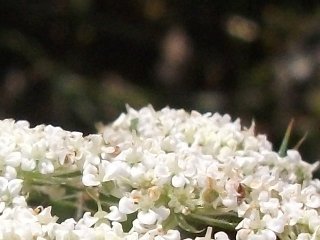

[ Articles ]
[ Seed List ]
[ Bio ]
[ Buy my book]
  |
[ Media ] [ Articles ] [ Seed List ] [ Bio ] [ Buy my book] |
 Summary
Summary
I grow my own variety of genetically diverse open pollinated land-race carrots on my farm.Selection Criteria
I choose carrots that grow well in my low-humidity sun-drenched high-elevation cool-nighted garden. Due to heavy limestone-derived lake-bottom soil I select mostly for Dantes and half-Nantes types which can be harvested whole without breaking, and generally grow without lots of knobs and multiple tap-roots. I select stress tolerant biennial plants to produce the seed crop.Isolation Distances
Sometimes when I tell people that I am growing my own seeds they get nervous, saying things like, "How do you keep pollen from the wild carrots from ruining your seed crop?", or "Aren't you worried about the bees bringing pollen from other gardens?" I believe that these questions arise because of data about "isolation distances" that have been published in some articles about growing highly inbred seeds on commercial farms. My basic answer is that I am growing open pollinated crops, so I don't care if I receive pollen from other sources. I propagate the best-growing most-suitable plants each year, so if stray pollen helps my crop grow better then I welcome it into my garden. If it causes something to grow worse then I don't select that plant for making seeds. I have written a more detailed article about isolation distances.Eliminating Commercial Contamination
During the 2012 growing season I intend to examine my carrot seed crop carefully to eliminate any parents that exhibit cytoplasmic male sterility. This is manifest in the flowers by deformed anthers: Either the anthers are brown, or they are replaced by a whorl of petals. All F1 hybrid carrots, and just about all carrots obtained from the grocery store carry this genetic defect. For this reason if you are intending to grow your own carrot seed I recommend that you start with a good open pollinated or heirloom population, and do not use grocery store carrots or hybrid carrots.
 Male Fertile Carrot |
 Male Sterile Carrot |
My Other Landraces
Landrace garden crops
Warm Regards,
Joseph


Join me at the Heritage Grain Alliance